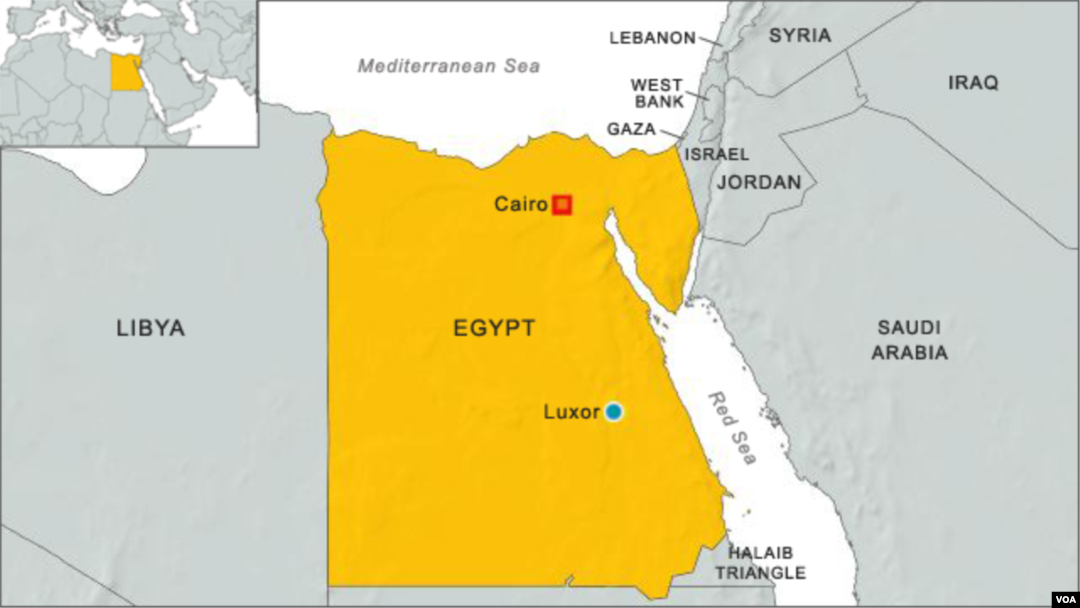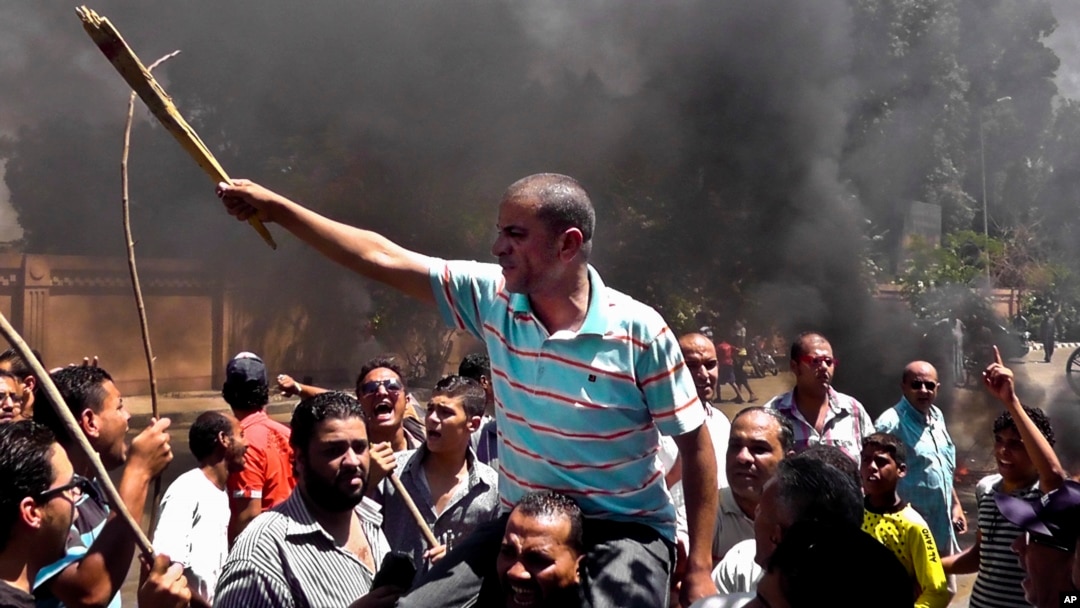CAIRO —
Opponents and supporters in the tourist city of Luxor remain in a standoff over a newly-appointed governor tied to the group accused of a terror attack there in 1997. The incident highlights growing nationwide political chasms ahead of planned anti-government protests later this month.
Supporters and opponents of the new Islamist governor of Luxor remain outside government headquarters in the tourist city. A spokesman for Adel Mohamed al Khayat says the governor hopes to talk to his detractors soon.
Badawi El-Masry, head of media for the Luxor governorate, says al Khayat wants to explain his plans to develop the region and push the development of tourism.
Tourist workers and others are furious over the appointment of al Khayet, who hails from Gamaa Islamiya, the group accused of carrying out the grisly massacre in Luxor in 1997 of four Egyptians and 58 foreign tourists - including a five-year-old boy.

Al Khayat has denied any involvement in the attack, which appalled the Egyptian public and prompted Gamaa Islamiya to renounce violence.
Mohamed Bakr, of the Luxor branch of Gamaa Islamiya's political wing, says the group remains committed to peace.
Bakr says people are calling his group terrorists with violent tendencies, but argues if that were true, they would have clashed with the governor's opponents. The leadership, he says, decided not to.
But critics argue that the appointment shows not just a disregard for the group's violent past, but of some members condemnation of Egypt's pharaonic, pre-Islamic monuments as idolatry.
Political activist Hisham Kassem said the appointment "gives a terrible message that the Muslim Brotherhood government are against tourism simply by appointing someone who believes that monuments are idols and should be demolished."
Luxor spokesman el-Masry says Khayat's past comments about idolatry have been exaggerated.
But Kassam also believes the government may have had the context of the nation's deep polarization in mind when giving the post to an Islamist rival. He notes the call for early elections and mass demonstrations against President Mohamed Morsi on June 30.
"It's a clear message they're splitting things among the different Islamic factions hoping that they will support them in their upcoming battle with more or less the Egyptian nation,” said Kassem.
If so, any gain in support may likely be offset by the furor among the residents of Luxor.
Supporters and opponents of the new Islamist governor of Luxor remain outside government headquarters in the tourist city. A spokesman for Adel Mohamed al Khayat says the governor hopes to talk to his detractors soon.
Badawi El-Masry, head of media for the Luxor governorate, says al Khayat wants to explain his plans to develop the region and push the development of tourism.
Tourist workers and others are furious over the appointment of al Khayet, who hails from Gamaa Islamiya, the group accused of carrying out the grisly massacre in Luxor in 1997 of four Egyptians and 58 foreign tourists - including a five-year-old boy.

Luxor, Egypt
Egypt's tourism minister Hisham Zaazou tendered his resignation over the appointment, though he remains at his post. Luxor's historic environs include the temple of Karnak and the pharaonic tombs of the Valley of the Kings.Al Khayat has denied any involvement in the attack, which appalled the Egyptian public and prompted Gamaa Islamiya to renounce violence.
Mohamed Bakr, of the Luxor branch of Gamaa Islamiya's political wing, says the group remains committed to peace.
Bakr says people are calling his group terrorists with violent tendencies, but argues if that were true, they would have clashed with the governor's opponents. The leadership, he says, decided not to.
But critics argue that the appointment shows not just a disregard for the group's violent past, but of some members condemnation of Egypt's pharaonic, pre-Islamic monuments as idolatry.
Political activist Hisham Kassem said the appointment "gives a terrible message that the Muslim Brotherhood government are against tourism simply by appointing someone who believes that monuments are idols and should be demolished."
Luxor spokesman el-Masry says Khayat's past comments about idolatry have been exaggerated.
But Kassam also believes the government may have had the context of the nation's deep polarization in mind when giving the post to an Islamist rival. He notes the call for early elections and mass demonstrations against President Mohamed Morsi on June 30.
"It's a clear message they're splitting things among the different Islamic factions hoping that they will support them in their upcoming battle with more or less the Egyptian nation,” said Kassem.
If so, any gain in support may likely be offset by the furor among the residents of Luxor.


